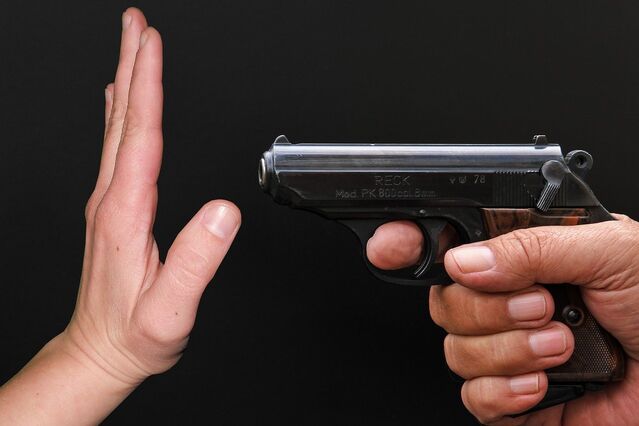Fear
The Role of Fear in Gun Violence and Gun Rights
Gun violence numbers are shocking, and changes badly need to happen.
Posted December 1, 2021 Reviewed by Tyler Woods
Key points
- In 2021, more than 36,000 people in the United States have died from gun violence.
- Fear is the driving emotion that triggers opposite opinions regarding gun legislation.
- Gun legislation that starts with less controversial topics has a chance of being passed.
Among the saddest and most disturbing events in the United States are shootings and killings. With Kyle Rittenhouse being acquitted of all charges on November 19, 2021, and three men convicted of the murder of Ahmaud Arbery, discussions about gun violence have come to the forefront again.
These recent events have probably reinforced the opposing opinions in society regarding firearms. One side believes that guns are a threat to public safety, while the other side believes guns are necessary for self-protection. One side cannot understand why there has not been any gun control legislation, while the other refers to the second Amendment and the right to bear arms.
“Insanity is doing the same thing over and over again and expecting different results”, Albert Einstein famously said. It seems we, as a society, are being insane when it comes to gun regulation because we have not done anything substantial to change the current situation yet we hope that gun violence will somehow fade away. We mourn and pray for the victims, we condemn the killings. Perpetrators are tried in court. Politicians may talk about gun ownership legislation, but nothing truly changes.
The main problem related to the discussion of gun control is that the beliefs and opinions of both sides are driven not by rational arguments but by emotions, more specifically by fear (Pierre, 2019). For one side, the main fear is that public safety is in danger due to the more than 390 million firearms in the United States (Karp, 2018); for the other side, there is the fear that we cannot defend ourselves in a cruel world if guns are taken away. Fear is a strong emotion, related to a loss of control. It can affect us by “freezing” opinions and beliefs. Therefore, it is unlikely to see dramatic changes in the opinions of both opposite sides or to see a comprehensive gun reform.
What could be done, however? Gun legislation could start with less controversial topics that the two opposite sides could more easily agree to. There is widespread public support for a ban on assault and semiautomatic weapons and of high-capacity magazines for private use. The Las Vegas shooter, Stephen Paddock, who killed 60 civilians and wounded 411 people in 2017 used 23 firearms, some of which were semiautomatic weapons (Jervis & Johnson, 2017).

There is also wide support for buyers’ backgrounds being consistently checked and recorded (National Instant Criminal Background Check System, NICS).
There is wide support for restricting the use of firearms for those who have been convicted of certain crimes, those who have restraining orders due to domestic violence, and those with mental illness who demonstrate a risk of harming themselves or others (Pierre, 2017).
There is wide support for laws requiring safe gun storage in households with children.
There is wide support for opposing carrying firearms in public spaces such as schools, colleges, places of worship, or restaurants.
These regulations are less controversial and could be achieved. There is hope that through small, consistent steps in gun regulation progress can be made. To do so, we have to find the common ground where fear does not preclude compromise.
References
Gun Violence Archive (2019). https://www.gunviolencearchive.org/
Jervis, R., & Johnson, K. (2017, Oct. 3). What guns were used in the Las Vegas shooting? https://www.usatoday.com/story/news/2017/10/03/what-gun-used-las-vegas-…
Karp, A. (2018). Estimating global civilian-held firearms numbers. Small Arms Survey: Australian Government, Department of Foreign Affairs and Trade of Australia. www.smallarmssurvey.org
Pierre, J. M. (2019). The psychology of guns: risk, fear, and motivated reasoning. Palgrave Commun 5, 159 (2019). https://doi.org/10.1057/s41599-019-0373-z
Tuason, M. T., & Güss, C. D. (2020). Gun violence in the United States in 2017 and the role of mental illness. Behavioral Sciences of Terrorism and Political Aggression, 12(3), 231-242. https://doi.org/10.1080/19434472.2019.1687561


